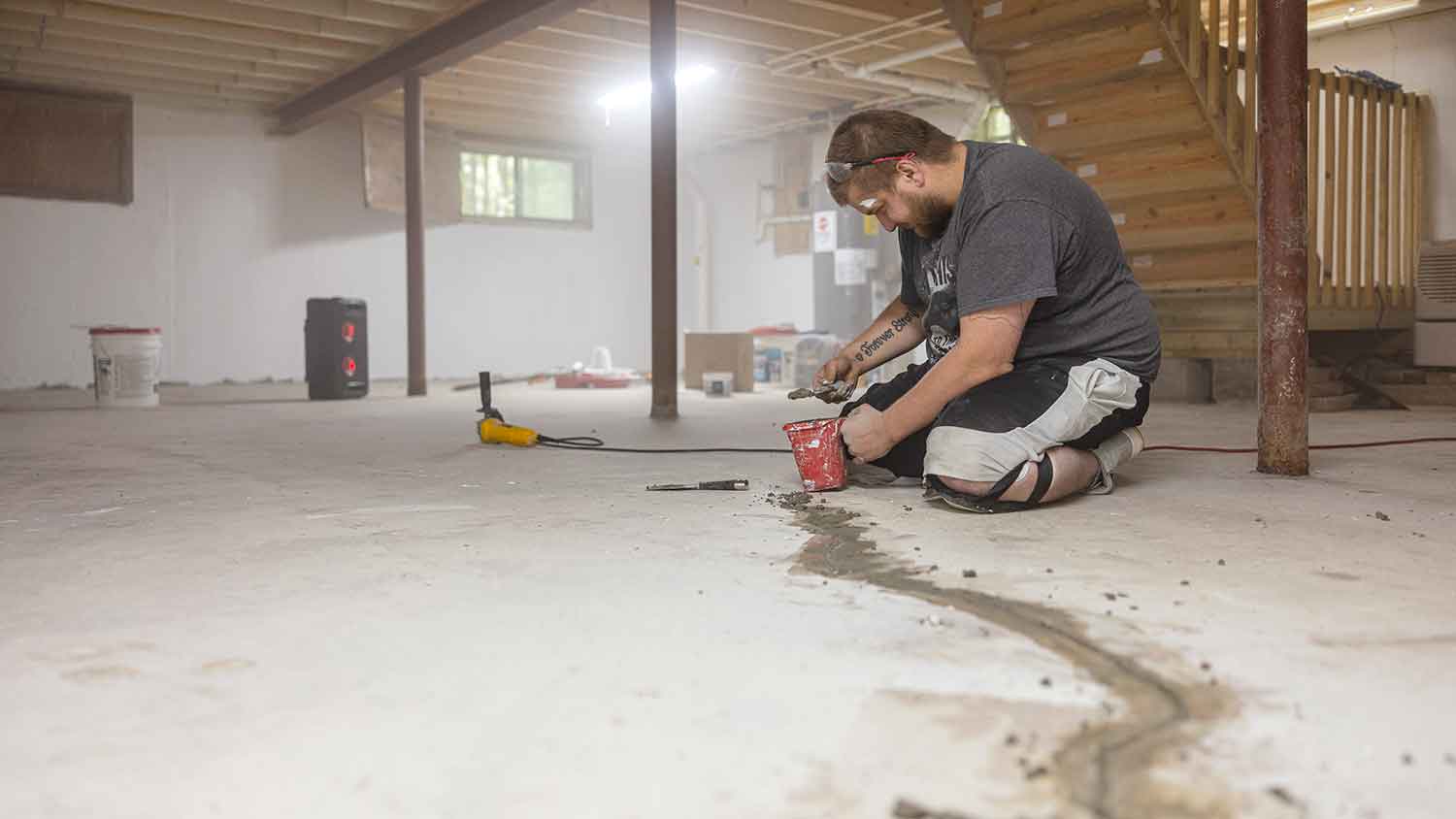Does Foundation Repair Affect Home Value?
Foundation repairs done properly can raise your selling price


Foundation repairs won’t add value to your home, but they can prevent your value from going down.
Foundation repairs done without permits or by unlicensed professionals can decrease your value.
Repairing major foundation damage before selling can speed up the sale by opening up additional buyer pools.
If you’re planning on selling your home but know you have foundation issues, you might be wondering if foundation repair affects your home value. Foundation damage and repairs can both affect your home value—understanding how the value changes can help you decide if you should repair before listing. In this guide, we’ll explain how foundation repair affects home value and whether or not you should sell your home with known foundation problems.
Does Foundation Repair Affect Home Value?
Yes, foundation repair will affect your home value, but whether the value goes up or down depends on a few things. Repairing minor foundation issues can make your property more attractive to buyers and raise its value while repairing major problems can prevent your value from going down, especially if you repair structural issues that would limit buyer financing options.
Can Foundation Repair Make Your Home More Valuable?
Provided you call the right professional for your foundation repair and ensure it’s completed safely and up to code, it will often increase the value of your home.
In the case of minor repairs and especially aesthetic repairs—like sealing settling cracks and installing preventative measures for dealing with moisture—the actual repair will have minimal effect on the inherent value, but a buyer’s perception of your property can improve. They might see that you’re going above and beyond to care for your foundation, which reinforces the idea that you’ve always carried out proper maintenance. A more positive buyer opinion often means a higher sale price.
In the case of major foundation repairs, where your contractor is restoring the structural integrity of your property, you’ll be avoiding a value decrease. Most states require that a seller disclose things like structural issues to buyers, and even if they don’t, the buyer’s inspection will often turn up any problems. Buyers who know that they’ll have to lay out additional money after closing to complete structural repairs will likely offer less for your home to compensate for that cost.
Can Foundation Repair Make Your Home Less Valuable?
Unfortunately, foundation repairs can make your home less valuable, too, but usually only if you don’t have the work completed by a certified and licensed professional, or if the foundation repair isn’t properly permitted.
Since you’ll need to disclose foundation repairs to buyers, providing proof that an experienced foundation repair company near you completed the work, everything remains up to building code, and that the repair is under warranty will instill confidence that there won’t be ongoing or recurring problems.
On the other hand, if you don’t get proper permits for your foundation repair, fail to hire a licensed foundation contractor to complete the work, or attempt DIY foundation repair, buyers will likely look at the repair as a liability that could end up costing them more in the future. In turn, they will likely offer less.
Should You Repair Your Foundation Before Selling Your Home?

Whether or not you should repair your foundation before selling your home depends on a few factors. Below are some things to consider to help you decide.
How severe is the damage? If you’re dealing with aesthetic issues like settling cracks or some minor moisture problems, the choice is yours whether or not to repair them before you list. Chances are buyers will like to see minor issues taken care of, but the value is unlikely to drop as it would if you tried to sell without repairing structural problems.
How long will the repair take? Speak with a professional about how long the foundation repair will take. If you’re in a rush to relocate, or the purchase of your new home is contingent on the sale, you could consider offering the buyer a credit for the repair to save time over repairing it yourself.
Does the issue affect buyer financing options? If you’re dealing with structural problems, they could prevent buyers using traditional financing from getting a mortgage, and limiting your buyer pool can lead to a lower sale price.
What’s the state of the rest of your home? If your home is a fixer-upper anyway, buyers interested in your property might not mind an additional foundation issue as part of their repairs. A pre-sale repair is probably best if your home is in otherwise good condition.
Will Foundation Repair Help My Home Sell Faster?
In some cases, yes, foundation repair can help your home sell faster. If you’re dealing with a major foundation issue, like ongoing flooding, mold growth from humidity problems, or structural issues, you’ll want to repair them before selling. Many buyers will walk away from a property with foundation damage as they don’t want to deal with the issues after closing. In those cases, carrying out the repairs yourself can bring in more willing buyers, speeding up the sale timeline.
Additionally, some banks won’t lend against properties with structural damage, so if your issue is bad enough to limit financing options to renovation loans or cash, the pool of potential buyers for homes with foundation problems will be smaller, which could mean a longer selling process.
Frequently Asked Questions
Whether or not repairing your foundation is worth it before selling depends on the extent of the damage, the cost of the foundation repair, and your timeline for relocating. If the damage is major or structural in nature, chances are you’ll sell at a higher price if you take care of the problem beforehand. You should consider the cost of the repair first, though, as laying out thousands might not be possible with your budget. Additionally, if you’re in a rush to relocate, you might want to repair before selling so as not to limit your buyer pool.
Foundation cracks won’t always affect your appraised value. All foundations crack due to normal settlement, so hairline cracks that aren’t leaking or uneven from side to side are unlikely to have an impact on your appraisal. Structural cracks, on the other hand, often lead to a reduced appraised value, especially if the underlying problem will cause the issue to worsen over time.
It depends on the bank and the extent of the issue. Some banks will lend against homes with minor foundation damage, but most won’t if the issue is structural since the home acts as collateral for the mortgage. Banks that offer renovation loans might still finance a home with structural problems. More minor issues like settling cracks and intermittent problems with humidity are unlikely to stop a bank from financing.















